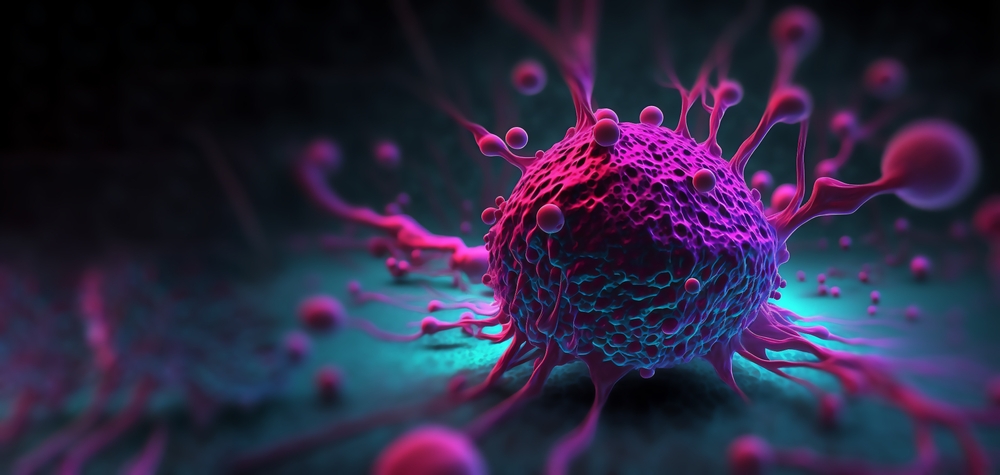Cancer is a complex and devastating disease with no single cause, making it one of the most studied medical mysteries in our lifetime. Until recently, medical professionals have mostly reacted to the disease when treating it; however, scientists are now comprehending how cellular processes such as kinase signaling pathways may relate to the advancement and growth of cancer. By further studying these pathways scientists are able to identify potential therapeutic targets which can then translate into targeted treatments. In this blog post we’ll take a closer look at what exactly kinases do within cells, their link to cancer biology, and how researchers study them in order develop personalized therapies for those affected by this dreaded disease.
What Are Kinases & How Do They Impact Cancer Development
Kinases are enzyme proteins that control biological activities in cells. Their primary function involves attaching a phosphate group onto a targeted substrate like proteins, creating what is called a phosphorylation event. These events have wide reaching impacts on cellular activities, including cell growth and division, creating chemical signals that instruct the cell what to do and where to go. In particular, kinases play a role in cancer development as they can stimulate certain pathways resulting in uncontrolled cell growth and survival if they become overactive or mutated. Oftentimes, this means that certain kinase inhibitors can be used as treatments to target these pathways and help stop cancerous cells from growing. Kinase research is an ongoing field of study due to the dramatic impact it can have on the outcome of many cancers.
The Role of Kinase Inhibitors in Treating Cancer
Kinase inhibitors represent a promising treatment option for many types of cancer including breast, prostate, liver, and brain cancers. Kinase inhibitors are drugs that target the kinase proteins involved in cell signaling pathways responsible for cell growth, division, delivery of signals between cells, and other cellular processes. By targeting these proteins, kinase inhibitors can slow down the development or spread of cancer cells. Additionally, kinase inhibitors often have fewer side effects than other chemotherapies, making them an attractive alternative treatment option in some cases. Moreover, researchers are continuing to investigate the potential applications and benefits of kinase inhibitors in treating various types of cancers, with promising results. It is clear that this relatively recent form of therapy presents a viable option towards treating otherwise difficult-to-treat tumors with few or no adverse effects.
Understanding the Types of Kinase Inhibitors
Kinase inhibitors are an important therapeutic class that interact with the intracellular targeted signaling pathways in cells. Differentiating between the various types of kinase inhibitors is essential for effective treatment plans, as specific types address a range of diseases, such as cancer and autoimmune disorders. For example, reversible inhibitors mark a cleft on the ATP binding site, meaning there is reversibility when it comes to their binding activity; meaning the inhibitor can either reverse its effect or changes its state altogether. On the other hand, irreversible inhibitors form covalent bonds with an amino acid at the peptide backbone in substrates; this yields stronger binding but no reversibility. Finally, allosteric inhibitors prevent phosphorylation by binding to an off-site domain which changes an enzymes conformation – essentially preventing any catalytic activity from occurring. A proper understanding of these distinct inhibitions is highly beneficial for pinpointing effective treatments for a broad spectrum of illnesses.
Developments in Targeted Therapies Using Kinase Inhibitors
Kinase inhibitors have become well established in the medical and scientific fields as a form of targeted therapy, which is able to target specific areas or aspects of diseases, such as gene transcription and protein activation. Such treatment plans are more effective than traditional therapies as they can efficiently control a wide range of complex diseases with minimal side effects. Many of the leading drugs for cancer treatments were developed using kinase inhibitor technology, along with other conditions including certain autoimmune disorders and infectious diseases. While there are still limitations in this type of therapy, such as cost effectiveness and the potential for resistance, it is clear that advances in kinase inhibitor treatments are revolutionizing many areas of modern medicine. This technology has the potential to make a significant impact on reducing mortality rates from cancer, as well as providing new mechanisms for preventing and controlling other serious illnesses going forward.
Identifying Possible Drug Targets Through Kinase Mutations
Kinase mutations can be used for drug target identification, as it is the most important type of enzyme to regulate cellular functions. By studying kinase mutations, we can infer which types of drugs may be effective in treating a given disease. The ability to analyze and identify gene mutations through whole-genome sequencing enables accurate determination of what drug combinations could be most beneficial for individual patients. By specifically targeting mutated kinase forms, drug therapies can become more efficient and effective with fewer side effects resulting from unanticipated activities. To further improve precision of drug usage, scientists are determined to develop computational programs that use data from both these mutational studies and other sources to better understand challenging diseases and assess the impact of possible treatments.
Analyzing the Benefits & Challenges of Targeted Therapies Using Kinase Inhibitors
The development of effective targeted therapies using kinase inhibitors has revolutionized the treatment of cancer and other complex diseases. In addition to more precise approaches to treatment, targeting has enabled personalized medicine tailored to each individual’s unique genome, resulting in higher success rates while minimizing side effects. While research continues to improve our understanding of how these drugs work and what the implications are for individual patients, one major challenge is cost. Targeted therapies tend to be much more expensive than traditional chemotherapies, greatly limiting access and affordability. Another challenge is that not all kinase inhibitors result in better outcomes; some individuals do not respond positively or develop resistance. To that end, it is essential that healthcare professionals have a thorough understanding of the benefits and risks of using these treatments so they can provide the best possible care for their patients’ conditions.
Kinases and the development of cancer are complex but increasingly manageable areas of research. Thanks to a better understanding of the role that kinases play in oncology, medical researchers have been able to make significant advances in developing more effective treatments for certain types of cancer. Doctors can specifically target tumors that traditional treatments may not be able to reach by using kinase inhibitors; however, these drugs present their own set of challenges. Further research should make greater inroads into understanding how these drugs work on a cellular level and provide increasingly safe and reliable therapies for those dealing with this disease.Ultimately, it is our hope that this deeper knowledge will result in more success stories for patients battling cancer.

